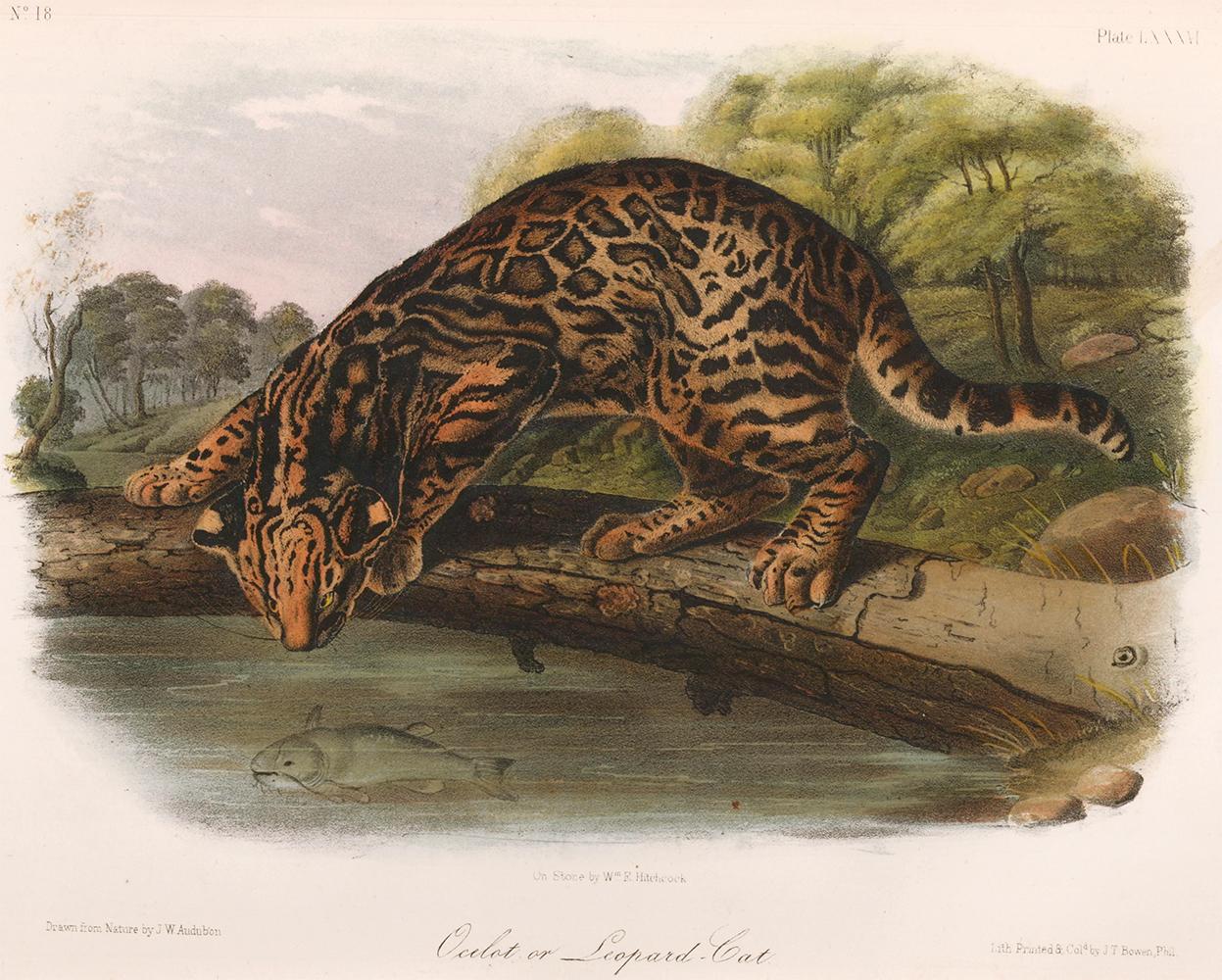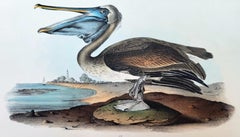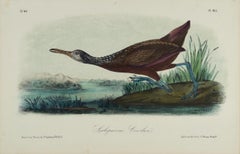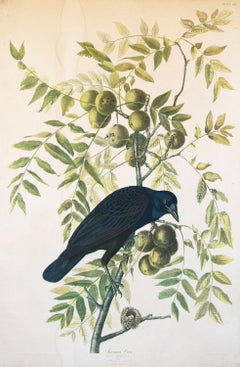Questions & Answers
Our trusted network of 1stDibs sellers answer common questions
How can I tell if my Audubon print is real?
1 Answer

To check if you have a real Audubon print, use a magnifying glass to look at the print up close. If you see that the print is made up of tiny dots, your print is likely a reproduction. Shop a collection of expertly vetted John James Audubon prints from some of the world’s top sellers on 1stDibs.
1stDibs ExpertApril 5, 2022
Related Questions
- How are Audubon prints made?1 Answer
- How do you tell if an Audubon print is an original?1 Answer
- How do you tell if an Audubon print is valuable?1 Answer
- How much is my Audubon worth?1 Answer
- What is an Audubon book worth?1 Answer
Shop for John James Audubon Prints and Multiples on 1stDibs
Brown Pelican /// John James Audubon New Orleans Ornithology Animal Bird Art
By John James Audubon
Located in Saint Augustine, FL
Artist: John James Audubon (American, 1785-1851)
Title: "Brown Pelican" (Plate 424, No. 85)
Portfolio: The Birds of America, First Royal Octavo Edition
Year: 1840-1844
Medium: Origin...
Category
1840s Victorian Animal Prints
Materials
Watercolor, Lithograph
Scolopaceous Courlan: An Original 19th C. Audubon Hand-colored Bird Lithograph
By John James Audubon
Located in Alamo, CA
This is an original 19th century John James Audubon hand-colored lithograph entitled "Scolopaceous Courlan", No. 63, Plate 312 from Audubon's "Birds of America, lithographed, printed...
Category
Mid-19th Century Naturalistic Animal Prints
Materials
Lithograph
American Crow 1858 Chromolithograph by J.J. Audubon Plate, Julius Bien Edition
By John James Audubon
Located in Paonia, CO
American Crow by J.J. Audubon from his Birds of America folio shows an adult male crow in a Black Walnut bush with a nest of a Ruby-Throated Hummingbird in a branch below the crow. This original chromolithograph plate no. 226 is in good condition with a repairable water mark in the image on the left side as can be seen in the photos.
The ” Birds of America” by John James...
Category
1850s Naturalistic Animal Prints
Materials
Lithograph
Roseate Spoonbill /// John James Audubon Natural History Ornithology Water Bird
By John James Audubon
Located in Saint Augustine, FL
Artist: John James Audubon (American, 1785-1851)
Title: "Roseate Spoonbill" (Plate 362, No. 73)
Portfolio: The Birds of America, First Royal Octavo Edition
Year: 1840-1844
Medium: Original Hand-Colored Lithograph on wove paper
Limited edition: approx. 1,200
Printer: John T. Bowen, Philadelphia, PA
Publisher: John James Audubon and J.B. Chevalier, New York, NY and Philadelphia, PA
Sheet size: 6.75" x 10.44"
Image size: 5" x 7.63"
Condition: In excellent condition
Very rare
The "Roseate Spoonbill" is one of the very top, absolute most desirable birds from Audubon's famous "Birds of America" series
Notes:
Provenance: private collection - Fleming Island, FL. Lithography and hand-coloring by American artist John T. Bowen (1801-c.1856). Comes from Audubon's famous seven volume portfolio "The Birds of America", First Royal Octavo Edition (1840-1844), which consists of 500 hand-colored lithographs.
Based on a composition painted in Florida in 1831 or 1832. "This beautiful and singular bird" was prized for its wings and tail feathers which were made into fans in St. Augustine.
The roseate spoonbill is a gregarious wading bird of the ibis and spoonbill family, Threskiornithidae. It is a resident breeder in both South and North America. The roseate spoonbill's pink color is diet-derived, consisting of the carotenoid pigment canthaxanthin, like the American flamingo.
To make 'The Birds of America' more affordable and widely available, in 1839 John James Audubon began the first octavo edition, a smaller version of the folio which was printed and hand-colored by J. T. Bowen in Philadelphia. Employing a new invention, the camera lucida, the images were reduced in size, rendered in intermediate drawings by John James Audubon and his son John Woodhouse, and then drawn onto lithographic stones. These miniatures exhibit a remarkable amount of attention to quality and detail, as well as a meticulous fidelity to the larger works. Some compositional changes were made in order to accommodate the smaller format. Like the Havell edition, John James Audubon’s first...
Category
1840s Victorian Animal Prints
Materials
Watercolor, Lithograph
American Flamingo /// John James Audubon Natural History Ornithology Bird Litho
By John James Audubon
Located in Saint Augustine, FL
Artist: John James Audubon (American, 1785-1851)
Title: "American Flamingo" (Plate 375, No. 75)
Portfolio: The Birds of America, First Royal Octavo E...
Category
1840s Victorian Animal Prints
Materials
Watercolor, Lithograph
Whooping Crane /// John James Audubon Ornithology Natural History Wading Birds
By John James Audubon
Located in Saint Augustine, FL
Artist: John James Audubon (American, 1785-1851)
Title: "Whooping Crane" (Plate 313, No. 63)
Portfolio: The Birds of America, First Royal Octavo Edition
Year: 1840-1844
Medium: Origi...
Category
1840s Victorian Animal Prints
Materials
Watercolor, Lithograph


